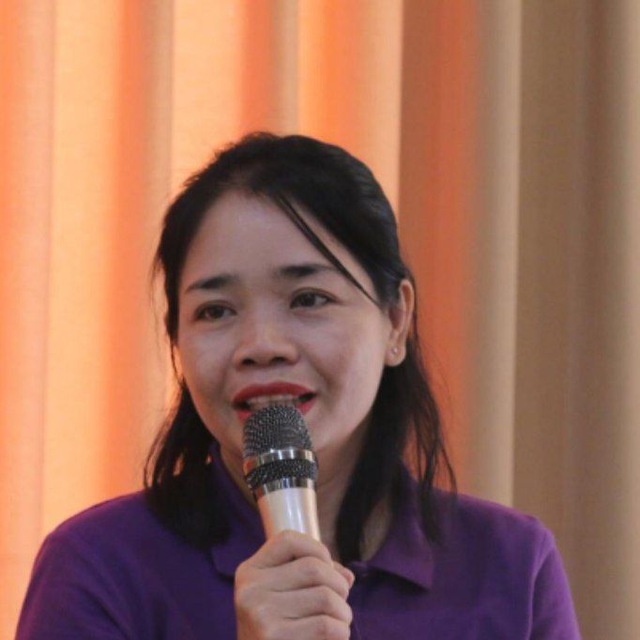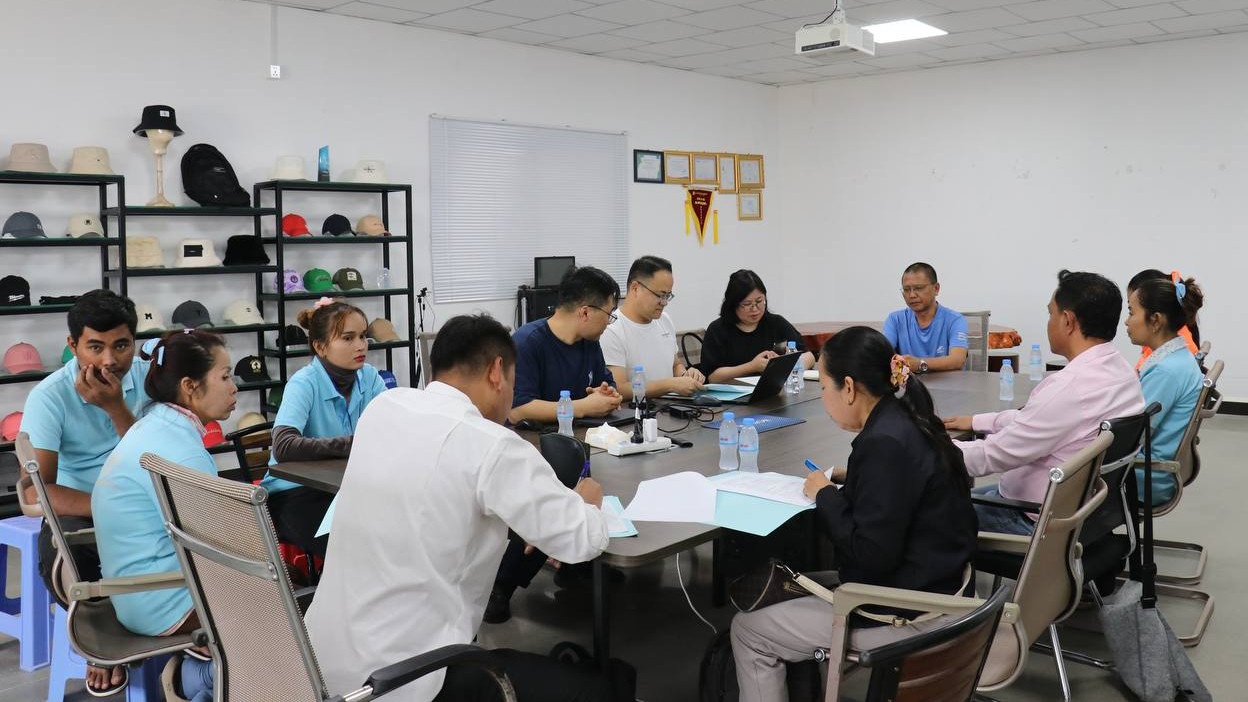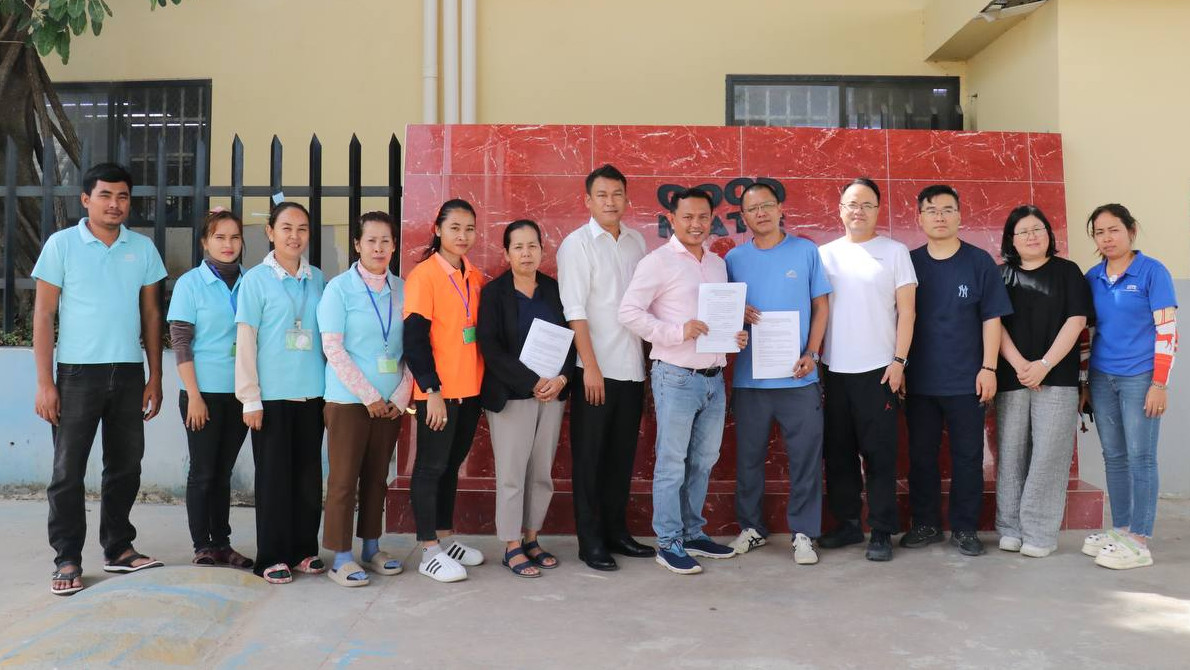Project coordinator for CNV Internationaal in Cambodia
Pisey Dan is a project coordinator for CNV Internationaal in Cambodia. Pisey talks about her daily work, how she supports local unions in their efforts to improve working conditions, what she is proud of and what the biggest challenges are in her work. She works primarily on the STITCH program, to improve labour conditions in the textile industry.

By empowering workers with targeted training and strengthening union capacities, we set course togehter for a fairer garment sector
Pisey Dan
1. What is your role within CNV Internationaal 's STITCH program in Cambodia?
"As a Project Coordinator for CNV Internationaal in Cambodia, I work alongside our key trade union partners, at national level and within the textile sector. The unions we work with represent the interest of workers in the textile and manufacturing sectors, advocating for their labour rights at both the factory and national levels.
My role is multifaceted, focusing on strengthening trade unions’ capacity to engage with suppliers, associations, and brands, supporting unions in exercising their rights, particularly around freedom of association and decent work, and supporting national minimum wage negotiations by conducting the annual Fair Work Monitor among garment workers in partnership with seven unions.
I also coordinate capacity-building initiatives, including training on trade union organising, labour laws, multi-company collective bargaining agreements (MC CBAs), dispute settlement mechanisms (including addressing gender-based violence), and legal assistance. In addition to this, I focus on training especially women workers on how to address and prevent gender-based violence in factories, investing in a joint platform to amplify women’s networks within the sector and collaborating with organisations to manage complaints towards brands and strengthen collective efforts."

Trade union representatives prepare for collective bargaining negotiations
2. What are you responsible for within STITCH?
"In the STITCH programme, we work directly with trade unions to assist them in building their power and voice to advocate for worker rights more effectively.
I oversee several vital areas, the first one being coordination: acting as a bridge between CNV Internationaal and stakeholders, I liaise with partner trade unions, consortium members, NGOs, brands, the Ministry of Labour, and the Dutch Embassy to ensure smooth collaboration and accurate project documentation.
Secondly, I work on capacity-building: I co-design and facilitate training sessions on labour rights and collective bargaining, empowering workers to advocate for their rights effectively.
Thirdly, stakeholder engagement: I bring together trade unions, factory representatives, and other actors to foster dialogue and collaboration, ensuring workers are represented and protected by law.
Finally, reporting and data collection: I compile quarterly reports to evaluate our progress and gather data from trade unions to guide programme decisions."
3. What does your average day look like?
"Every day in the STITCH programme brings diverse challenges and opportunities, reflecting the pressing needs of workers and unions in Cambodia. A typical day for me might include hosting a meeting with union leaders to strategise training sessions or address ongoing worker-related issues, coordinating planning meetings to prepare for the next phase of the Fair Work Monitor survey, communicating with the Ministry of Labour to facilitate project activities, drafting a report and analysing data collected from trade union surveys."
4. What achievement has CNV Internationaal contributed to within STITCH that you are proud of?
"I’m especially proud of implementing the Fair Work Monitor in Cambodia. This innovative tool equips trade unions with concrete data directly from the workers to strengthen their position at the annual tripartite wage negotiation table. For the first time, unions have been able to present solid evidence, significantly boosting their arguments for fair wages and improved working conditions."
Video made at the first year of the Fair Work Monitor in Cambodia:
"This year, we’ve expanded the monitor’s scope to include two more unions, reaching 2500 workers from almost 100 factories. This year, we gained more knowledge about the impact of existing wages on food security as well as access to health care.
Another milestone our trade union partners have been working on for a long time is the ACT agreement, a multi-company collective bargaining agreement supported by brands. This CBA provides benefits to workers, trade union, factories as well as brands. Hopefully, we can share more information about this CBA supported by brands soon, so others can also join."

The Cambodian union team that worked on the collective bargaining negotiations for the ACT crossing
5. What is the biggest challenge in transforming the apparel industry, and what solution do you think is most effective?
"The garment industry provides significant employment opportunities, but what workers earn in return is a much too low wage which can merely cover their basic needs. We need honest social dialogue and trust among relevant stakeholders: investors, brands, production country and consumption countries. They need to collaborate and make sure that investors and brands are doing the right things to ensure that people who produce garments are safe at work and receive a decent wage.
Partnerships like STITCH are instrumental in fostering collaboration and ensuring accountability. Tools like the Fair Work Monitor offer data-driven insights that enhance transparency and inform decision-making. Most importantly, empowering workers through targeted training and bolstering union capacities can drive the sector towards a fairer, more sustainable future."

Learn more:
The results of our latest Fair Work Monitor in the garment industry in Cambodia>>
Website STITCH program
Publication date 20 12 2024